Congratulations to our director, Prof. Susan M. Gasser: she has been presented the 2024 Swiss Who’s Who public choice award, honoring outstanding women in Switzerland.
This recognition underlines Prof. Gasser’s dedication, passion and positive impact on scientific research.
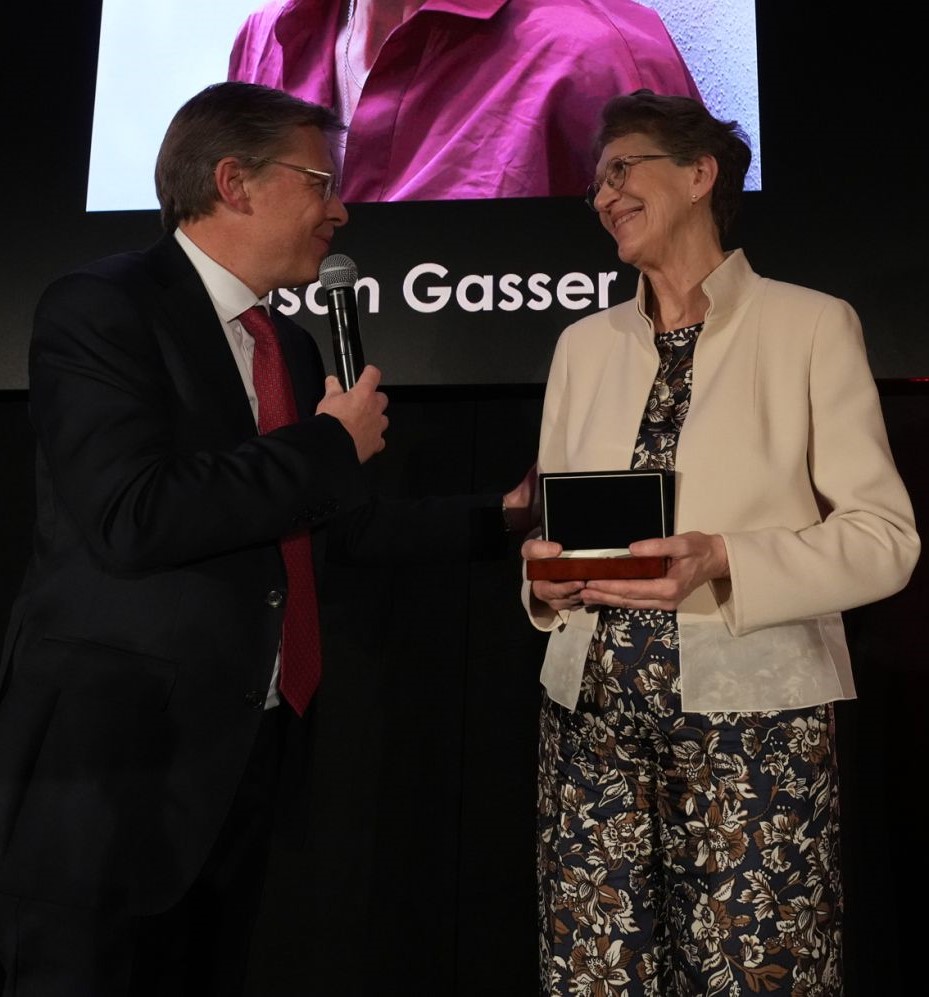
The ISREC Foundation extends its warmest congratulations to Prof. Andrea Alimonti who has been appointed the new director of the Institute of Oncology Research (IOR) starting January 1, 2024.
The ISREC Foundation is proud to be able to draw on the internationally recognized scientific expertise of Prof. Alimonti, a member of its Scientific Board.
Prof. Alimonti has received numerous Swiss and international awards honoring his remarkable contributions to cancer research. He is, in particular, renowned for his groundbreaking research on prostate cancer biology. His work has already led to promising new therapeutic approaches for this common malignant tumor in men.
Congratulations to Prof. Johanna Joyce, a former member of the AGORA community, who has been elected a Fellow of the American Association for Cancer Research (AACR) for 2024. Each year, the AACR honors scientists whose contributions have led to significant advances in the fight against cancer.
The AACR, a global working group consisting of renowned scientists, is dedicated to preventing and healing cancer through research, education, communication, collaboration, science policy and advocacy, as well as funding for cancer research.
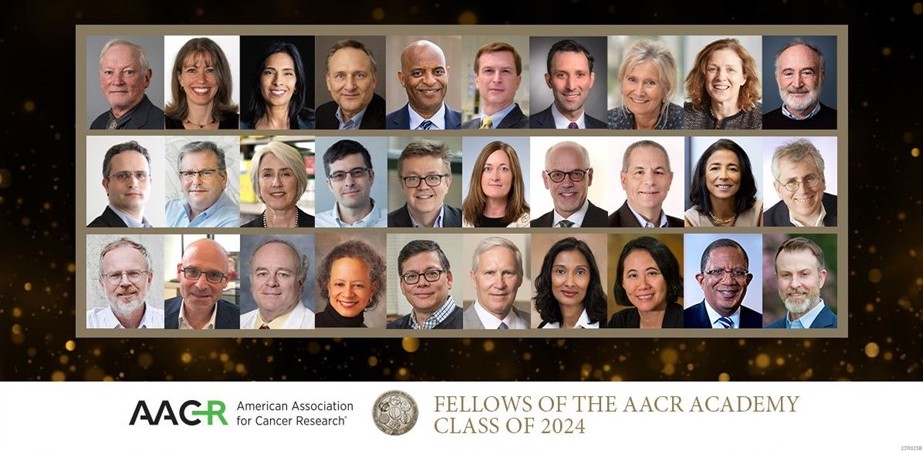
Congratulations to our scientific director, who, during her time in the Swiss Science Council (2016-2023), contributed to projects that may lead to innovations in medical research and to changes in the political system.
Well known for outstanding basic research and its superior system for the funding and promotion of science, Switzerland emphasizes the importance of interdisciplinary collaborations when tackling pressing global issues.
Link to the full interview (in German)
Congratulations to Prof. Elisa Oricchio, winner of the 2024 Pezcoller Foundation-EACR Award. This recognition honors her academic excellence and her research in the field of translational cancer research.
Currently the director of ISREC@epfl, Elisa was the holder of the ISREC Foundation Chair in Translational Oncology at the Ecole Polytechnique Fédérale in Lausanne from 2014 to 2020. We are proud to have contributed to the career of this brilliant scientist.
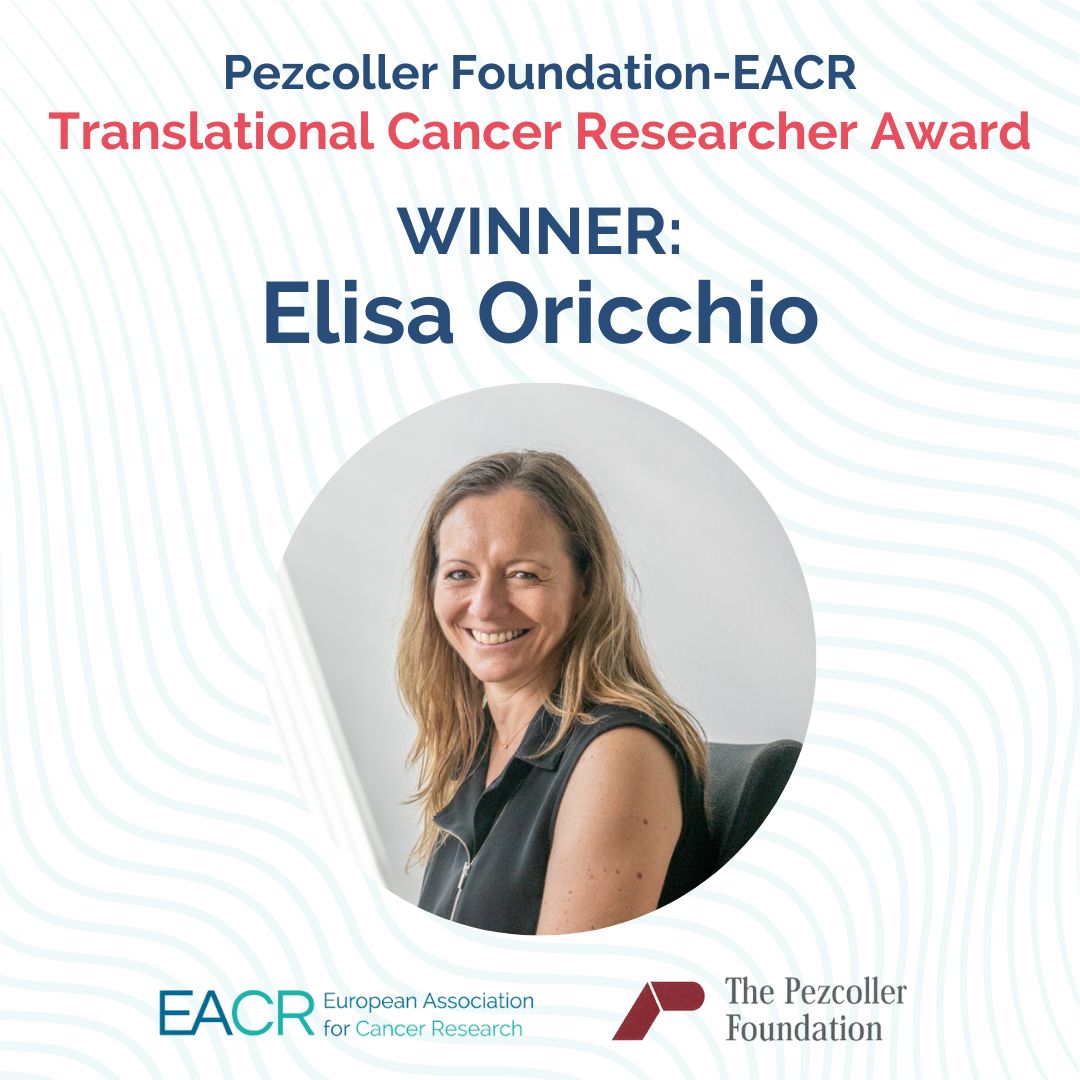
In 2023, six AGORA members were named Highly Cited Researchers by Clarivate/Web of Science!
This recognition not only means that their publications rank in the top 1% by citations for their respective field over the past decade, but is also a hallmark of analysis quality and expert judgement.
We would like to express our sincere congratulations to the following six brilliant scientists: Prof. George Coukos, Prof. Michele De Palma, Prof. Raphael Gottardo, Prof. Johanna Joyce, Prof. Olivier Michielin, and Prof. Mikaël Pittet.
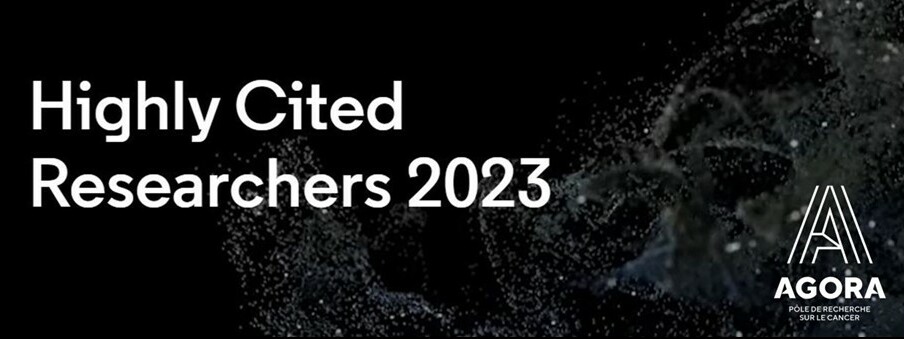
We were greatly honored to welcome the president of the Executive Council of the Canton of Vaud, Christelle Luisier Brodard, to our annual conference entitled “At the Heart of Oncological Research”.
This event was a great opportunity to draw attention to the power of scientific collaborations as well as to the fundamental role played by private foundations.
On this occasion, Mrs. Luisier Brodard had the opportunity to visit the AGORA research center and to exchange views with young scientists.
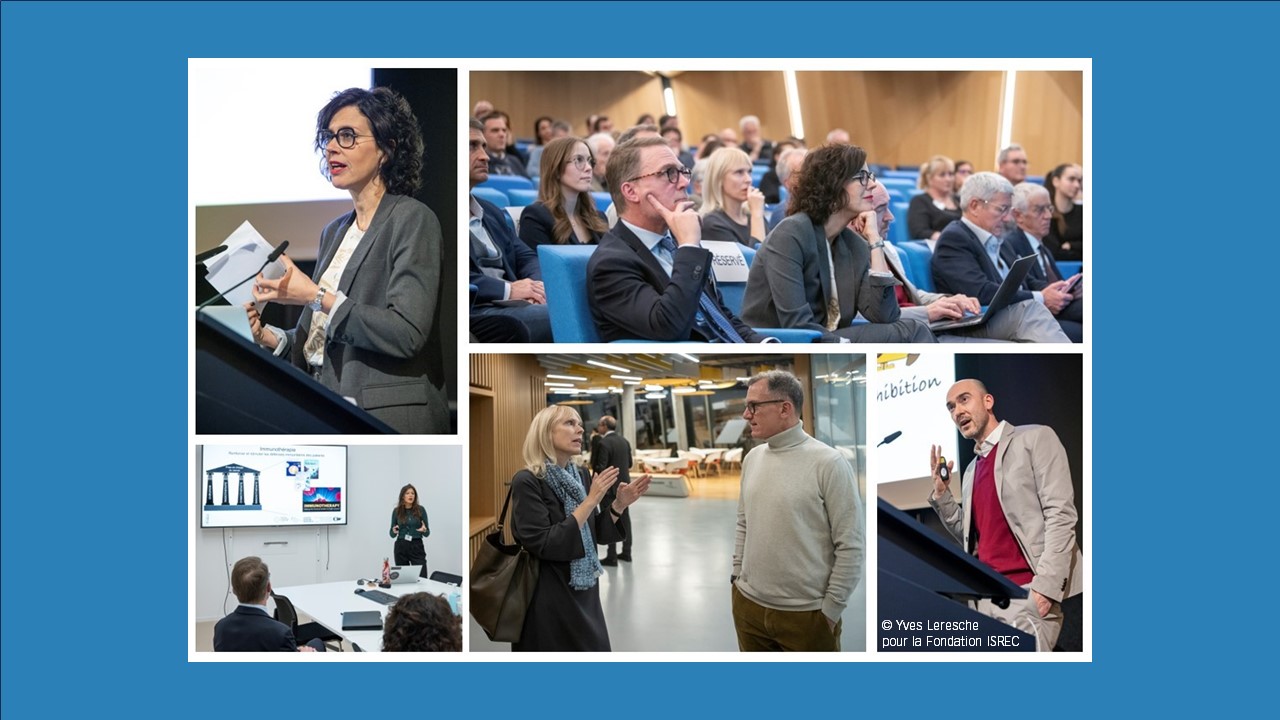
On Tuesday, October 3rd, Prof. Mikaël Pittet was presented with the Rayonnement Académique Award of the Société Académique Vaudoise by its president, Dr. Cyrille Piguet.
This prestigious prize, awarded for the first time in 2014, honors “those who make the university shine”. Thus, this distinction underlines Prof. Pittet’s outstanding scientific contributions in the field of immunotherapy. His research aims to discover how the immune system controls cancer and other diseases, and how it can be exploited for therapeutic purposes. His work has in particular led to the elucidation of how certain types of cancer are regulated by various cell classes, including cytotoxic and regulatory T cells, macrophages, monocytes, neutrophils and dendritic cells, all of which are considered drug targets for cancer immunotherapies.
The ISREC Foundation is very proud to support this eminent immunotherapy specialist’s research.
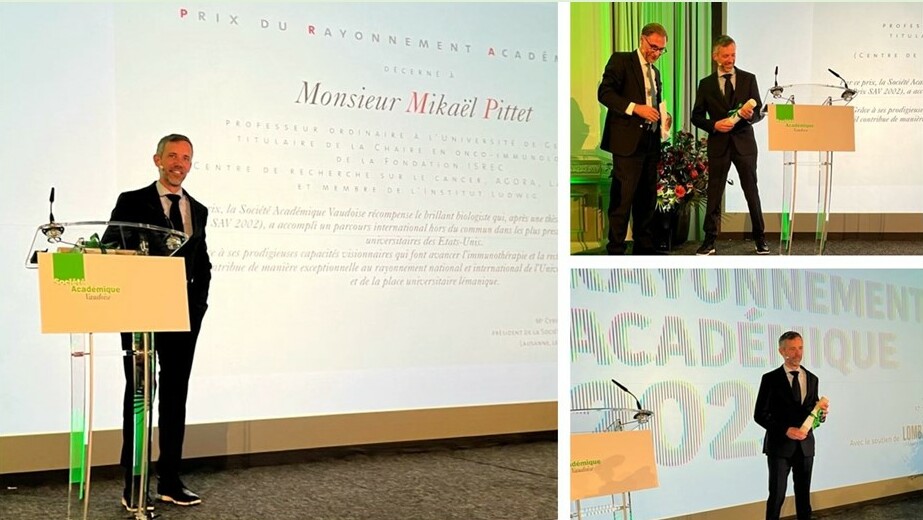
It is with great pride that we announce the new professorship created in collaboration with EPFL (Ecole polytechnique fédérale de Lausanne), which will be headed by Professor Nicolas Thomä.
The ISREC Foundation is donating 7.5 million CHF to the funding of this chair. Through this decisive donation we are able to contribute in a very tangible way to medical advances resulting from the research carried out by Prof. Thomä and his team.
Named in memory of Yves Paternot, the tireless patron and president of our Foundation (2005 to 2016) who passed away in 2016, this new professorship epitomizes our commitment to accelerating advances in the field of translational oncology. This substantial funding proudly perpetuates Yves Paternot’s vision, which has contributed to the ISREC’s impact far beyond cantonal borders and the Lake of Geneva region.

